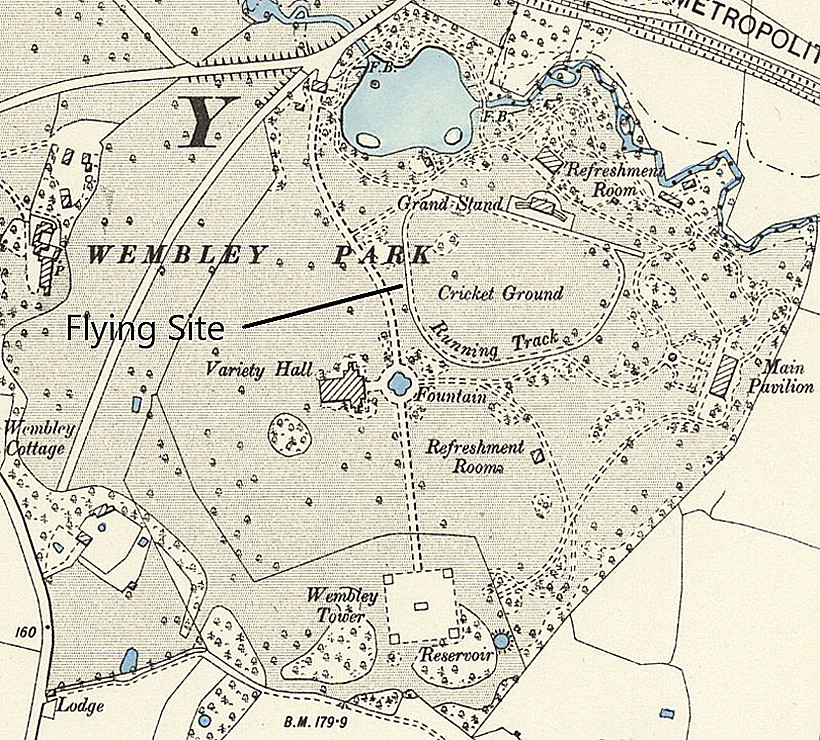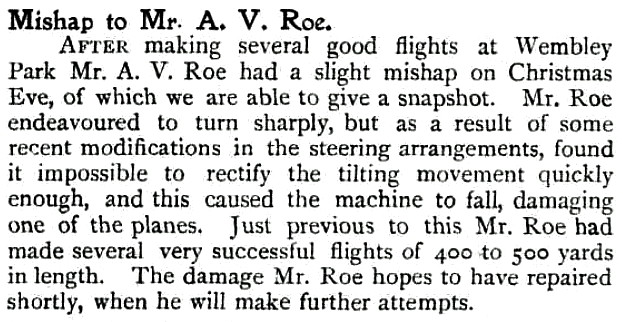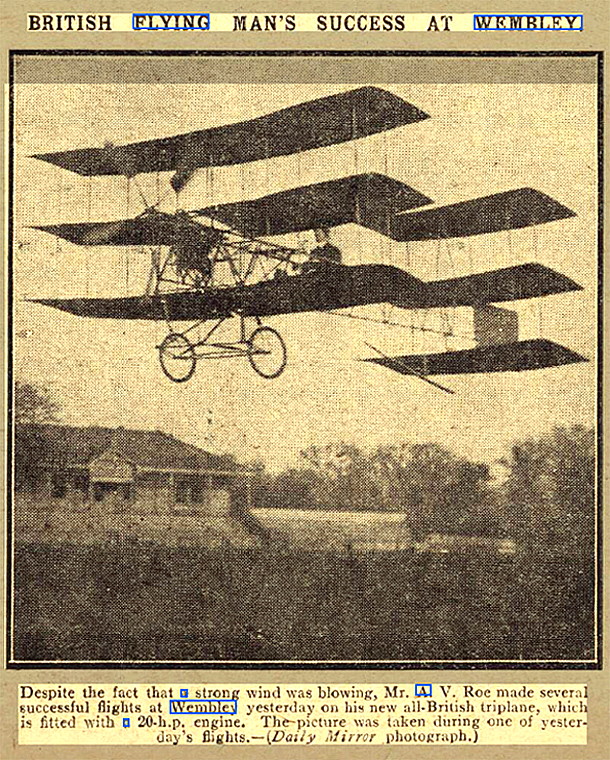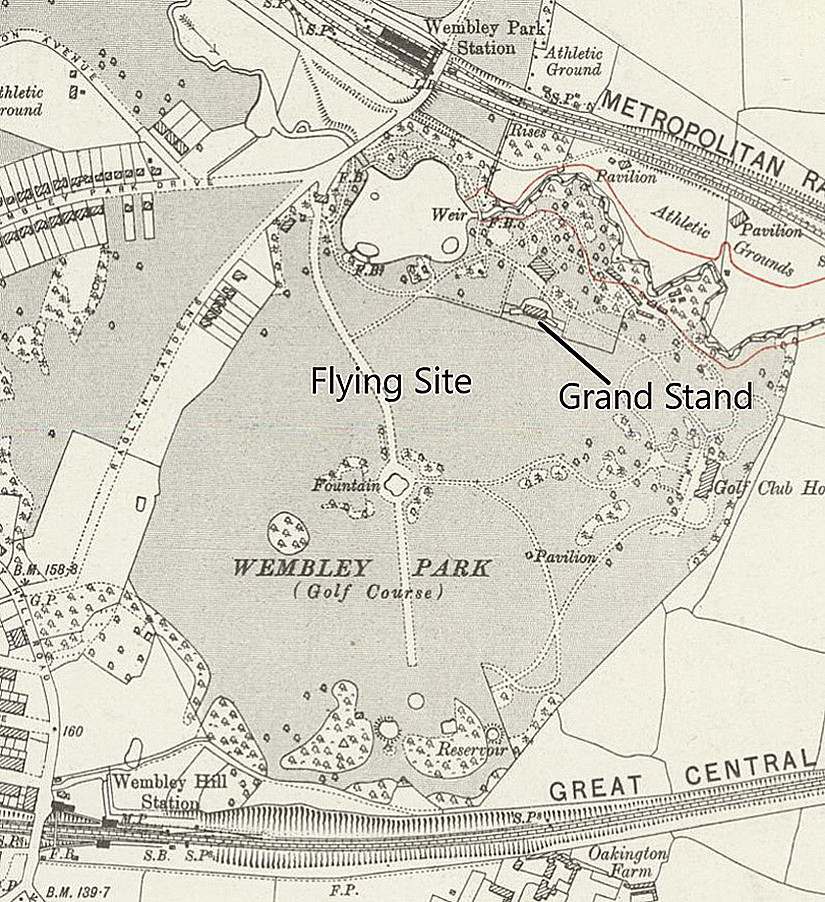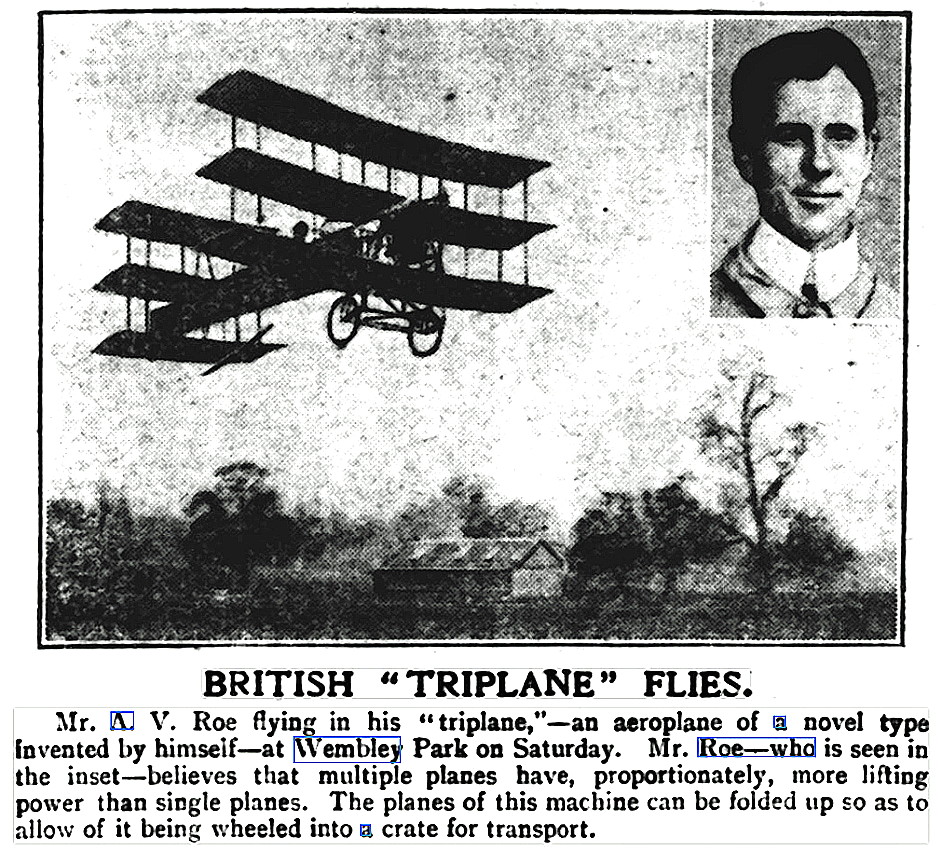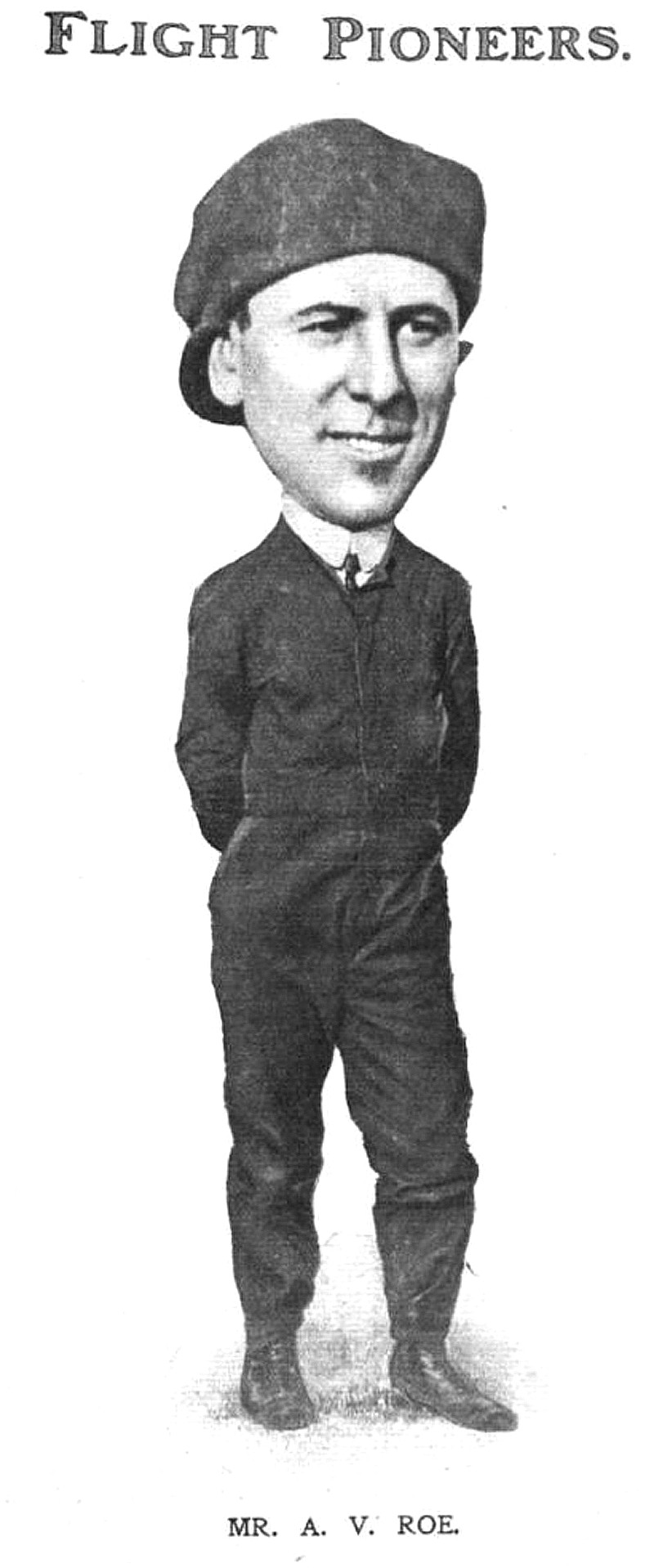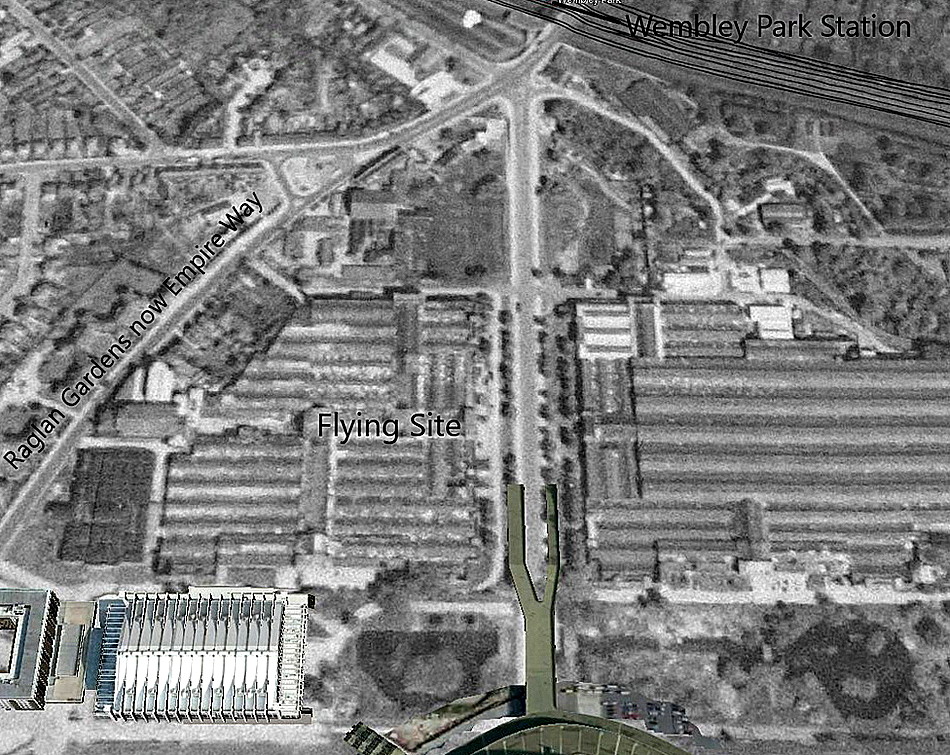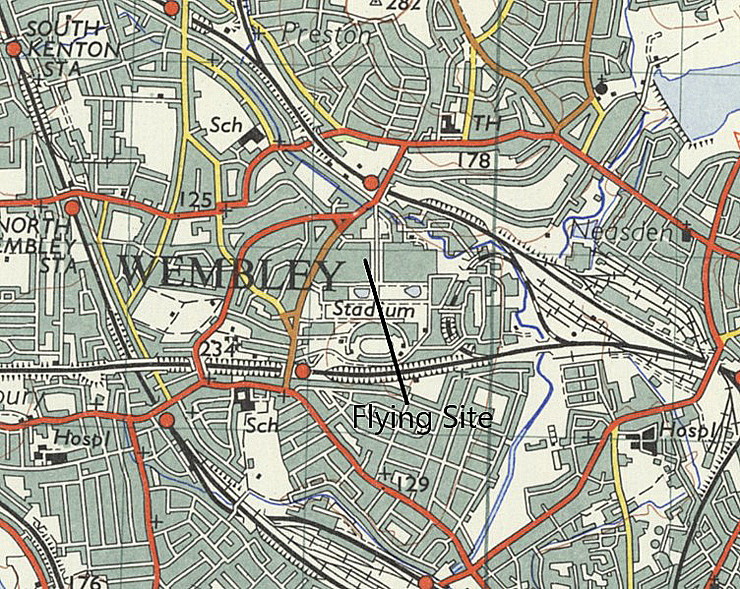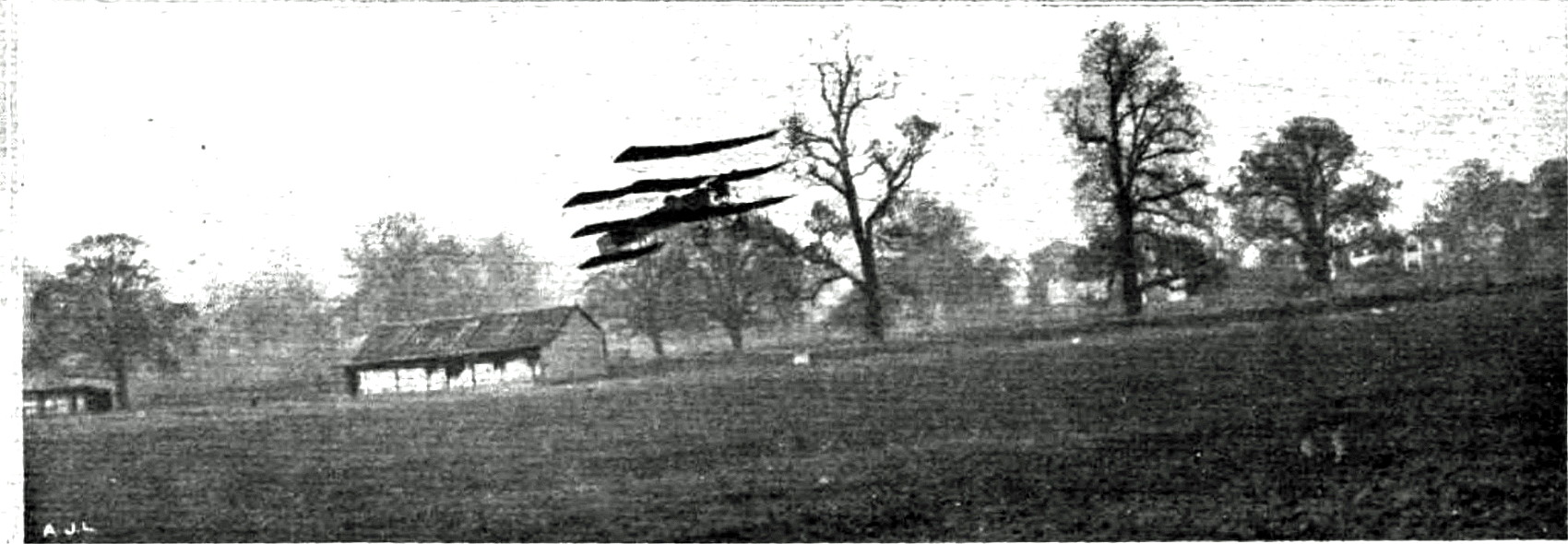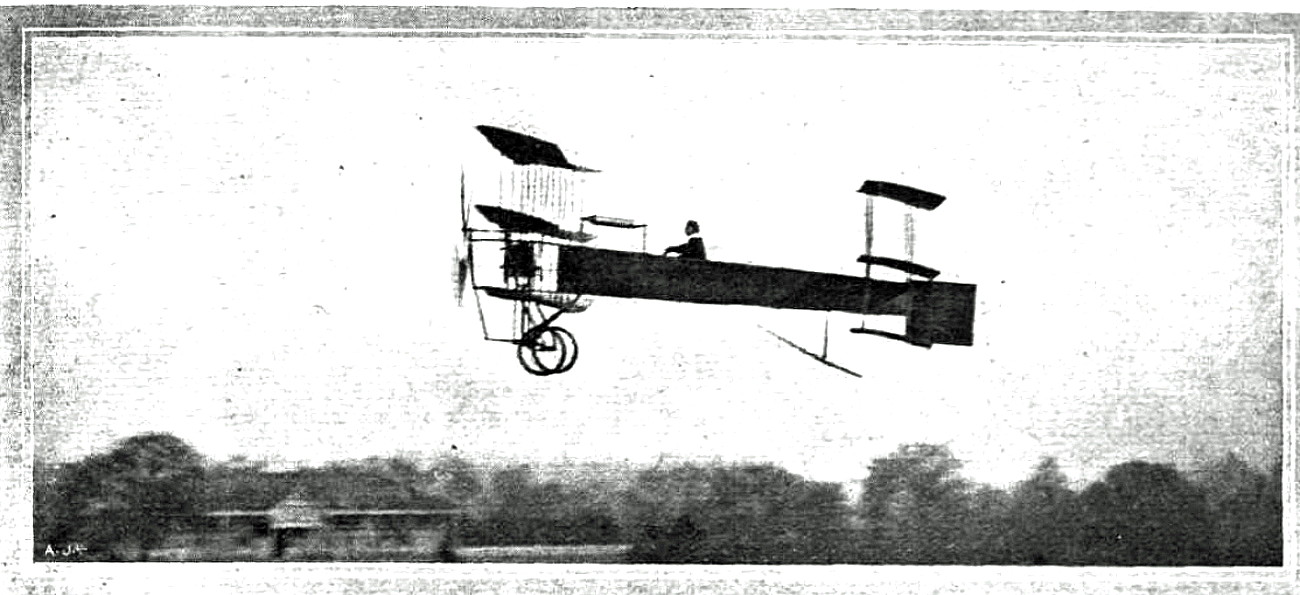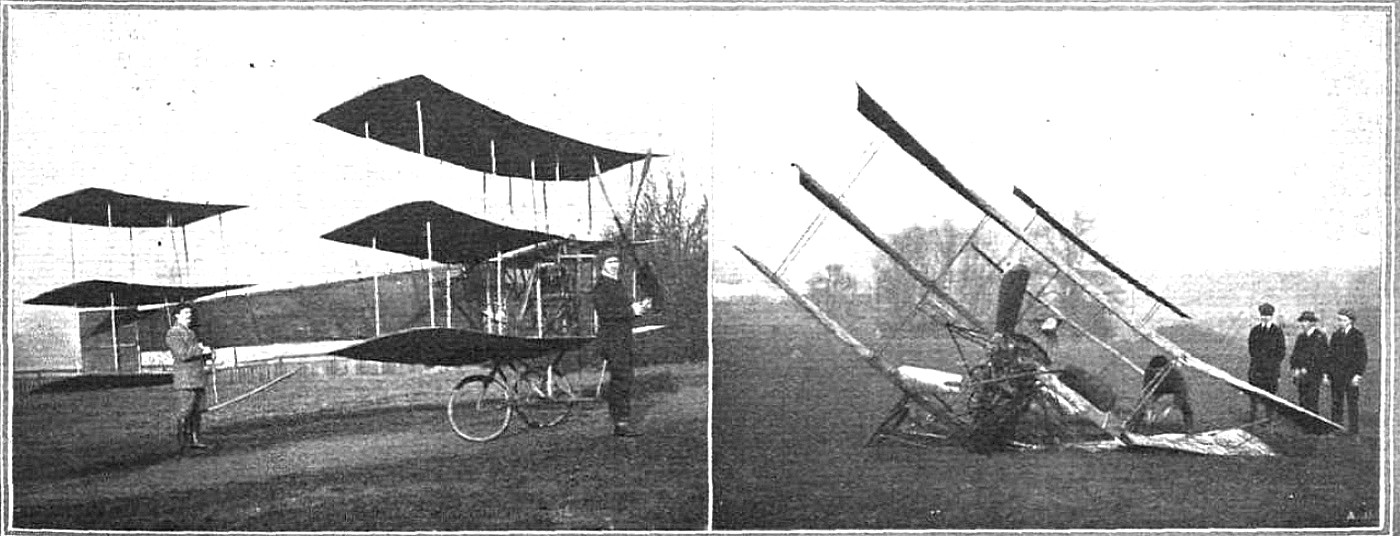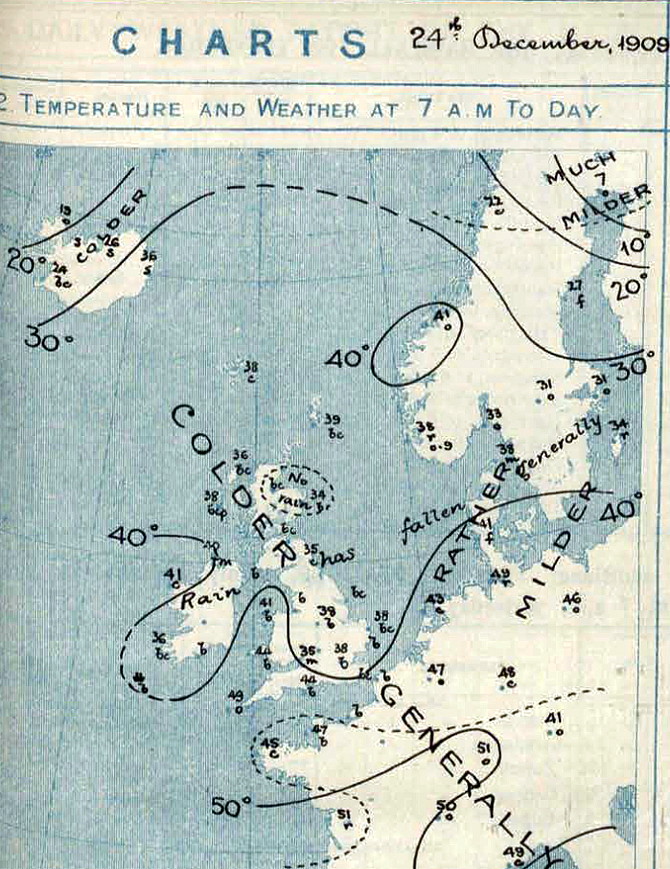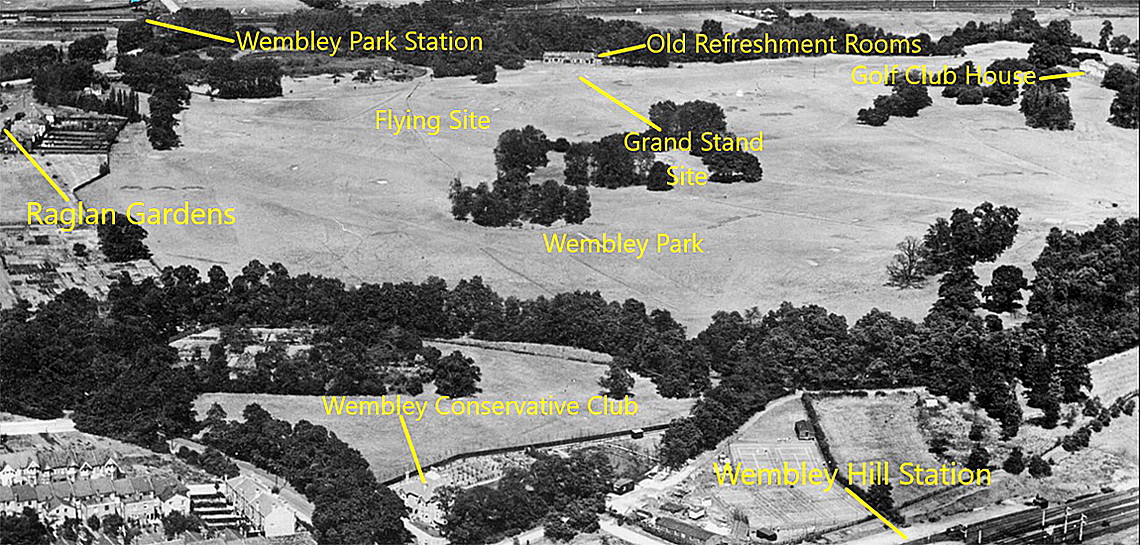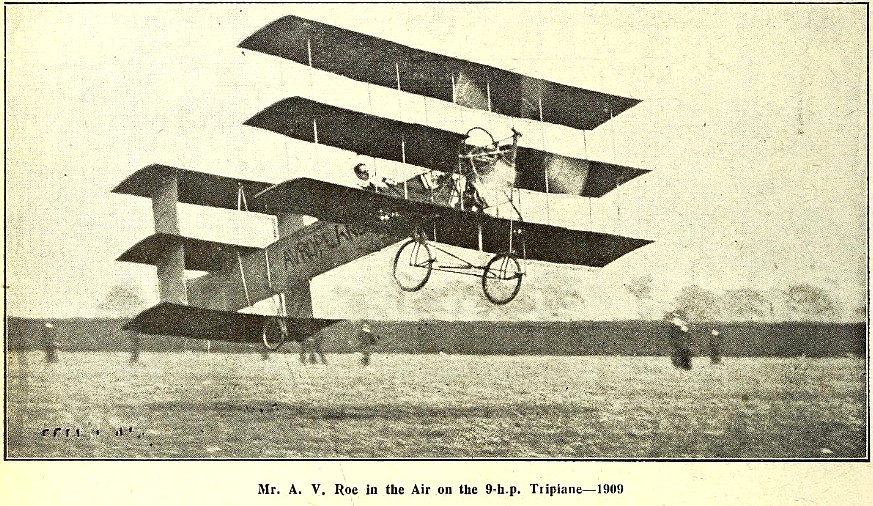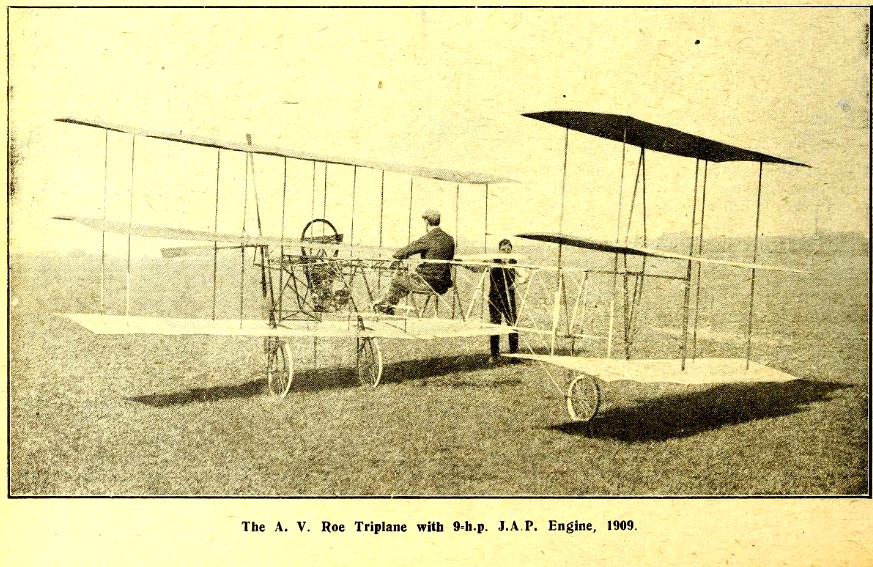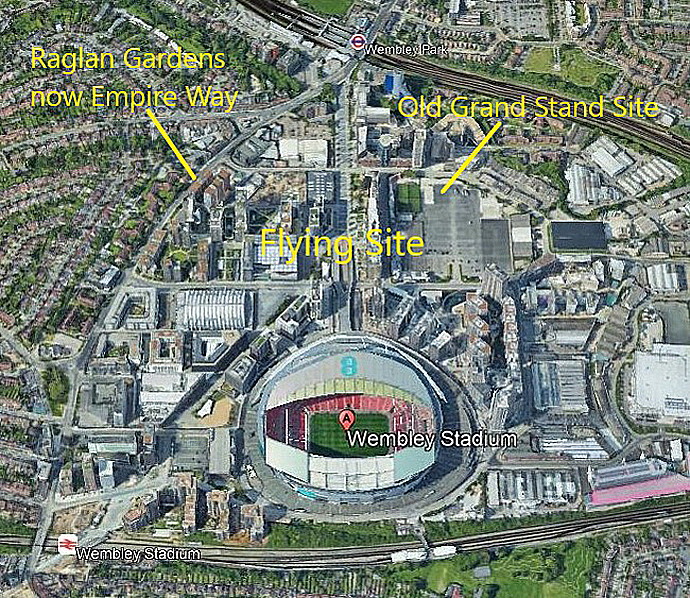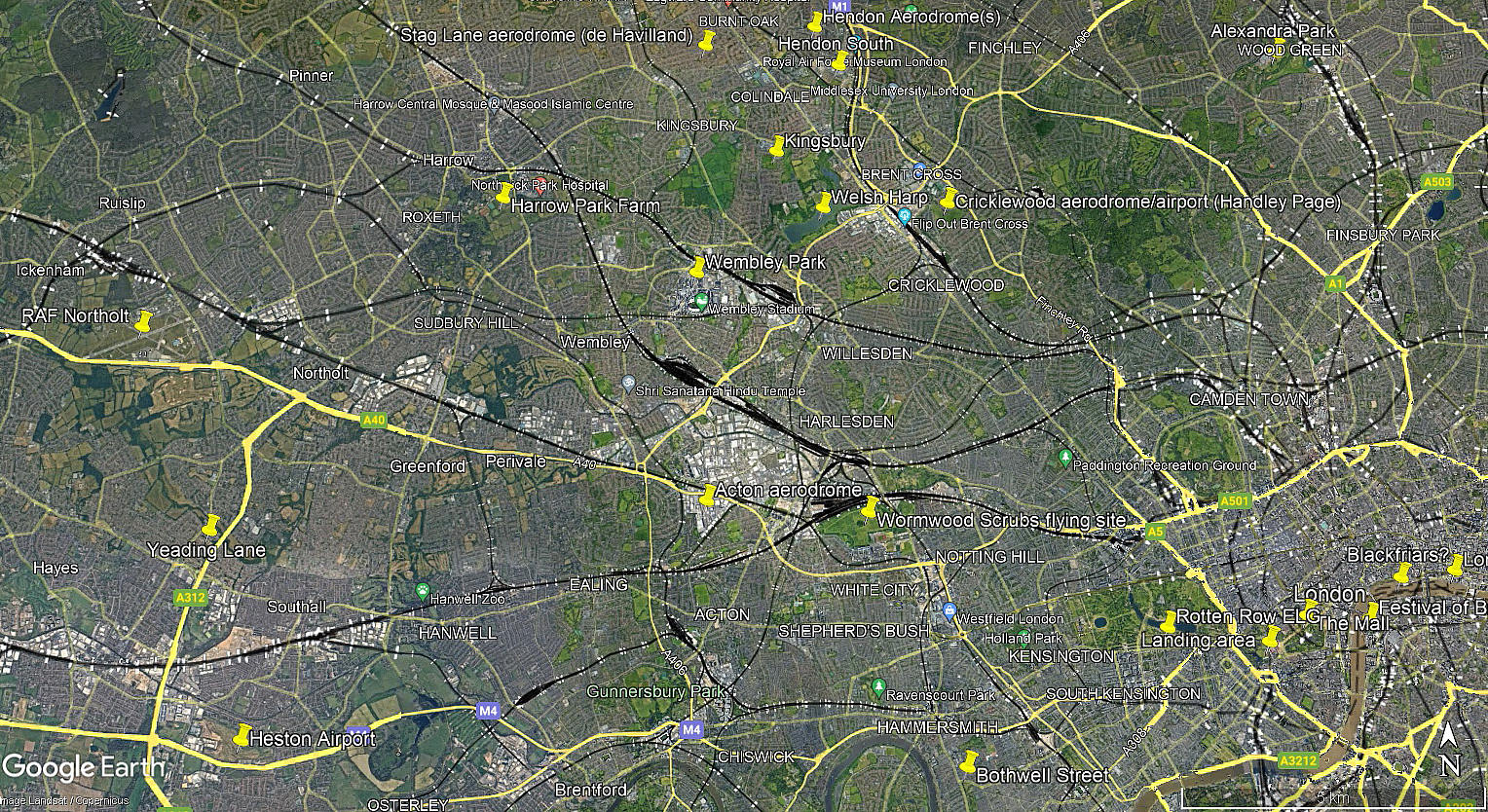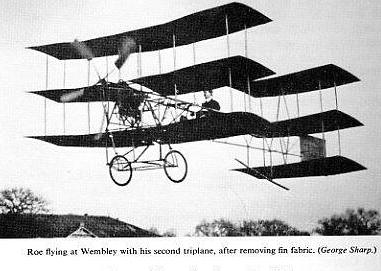Wembley Park
WEMBLEY PARK: Temporary aerodrome
Users: Initially A.V. Roe at least?
Location: Just N of where the later famous football stadium was built in 1923
Period of operation: By A V Roe: Late 1909 until early 1910. Some sources indicate the site was used until 1912- but, if so, by whom?
A MICHAEL T HOLDER GALLERY
We have to thank Mike Holder, a great friend of this 'Guide', for researching and compiling this fabulous collection of maps and pictures. And by heck, how this area has changed so massively over the years.
The short article was published in Flight magazine on the 1st January 1910. The Photo with caption One was published in the Daily Mirror on the 9th December 1909, after what might well have been Alliott Roe's first successful take-off on the 8th December? Clearly if comparing the 1894 and 1912 maps, very little had changed.
The Photo with caption Two was published in the Midland Mail on the 18th December 1909 and refers to a flight, (more of an extended 'hop' actually), on the 11th December. At the risk of becoming too pedantic (?), a 'hop' or 'straight' as they were known in those days, were strictly speaking not flights. Being briefly airborne in a straight line does not count. You can do this at speed in a car over a humpty back bridge. A flight is one when the aircraft is flown in all three axis, typically at first by flying a circuit. Still the case today usually for a first solo.
This being said, it certainly appears that, with his Triplane first test 'flown' on LEA MARSHES, (see a seperate listing), A V Roe had succeeded in greatly extending his 'hops' and was now keen to experiment with turns.
The 'picture' of Alliot Verdon Roe was published in Flight magazine on the 29th January 1910.
OOOPS!
These three pictures were published in Flight magazine on the 1st January 1910. Perhaps all taken on Xmas Eve before the 'mishap'? Either way, the very last picture certainly serves to prove how attempting to make a turn in aeroplanes was fraught with problems.
The Photo Three and Photo Four were published in The Aeroplane magazine, but, on the 23rd April 1919.
I have added this just to illustrate some of the flying sites in west London in this 'Guide', as marked on my Google Earth © derived database. Since starting this project over twenty five years ago, (said in 2024), since then I have been astonished how rich the aviation history has been. Not just in this area of course, but throughout the Greater London area, and extending into the Home Counties. And, I fully expect that others will come to light as the project progresses.
MORE INFORMATION
Note: This picture by George Sharp was scanned from British Aviation - The Pioneer Years, by Harald Penrose
NOTES: It seems that after use of the land on LEA MARSHES was withdrawn, A V Roe moved to WEMBLEY PARK for more trials with his triplane in late 1909. It is claimed that the proprietors of Wembly Park were very keen to encourage aviators to conduct their experiments here, and cleared more and more obstacles to expand the area for flying.
However, it seems that when in early 1910 Capt. Windham began experimenting with a Blériot monoplane, it was clear that the site was too small to enable turns to be made and a 'proper' aerodrome to be established. We need to remember of course that in those early days an aerodrome was an area within which flying took place. A V Roe was only making, it seems, 'straights'. In other words taking off and the landing in the same direction. Learning how to safely make a proper coordinated turn was a skill that took some time to be mastered. Prior to that flat 'skidding' turns were made using just the rudder(s), which in itself, due to the very low speeds involved, could quite easily result in one wing, (the into-turn wing), becoming stalled if too much rudder was applied.
Please read British Aviation - The Pioneer Years by Harald Penrose for a much fuller and fascinating account.
Realising this, A V Roe, also finding the site to be too restricted, he then moved back to BROOKLANDS in SURREY, his original flying site, which had quite suddenly become a new aerodrome after the French pilot Louis Paulhan had agreed to give a demonstration of flying which had attracted huge crowds.
We'd love to hear from you, so please scroll down to leave a comment!
Leave a comment ...
Copyright (c) UK Airfield Guide














